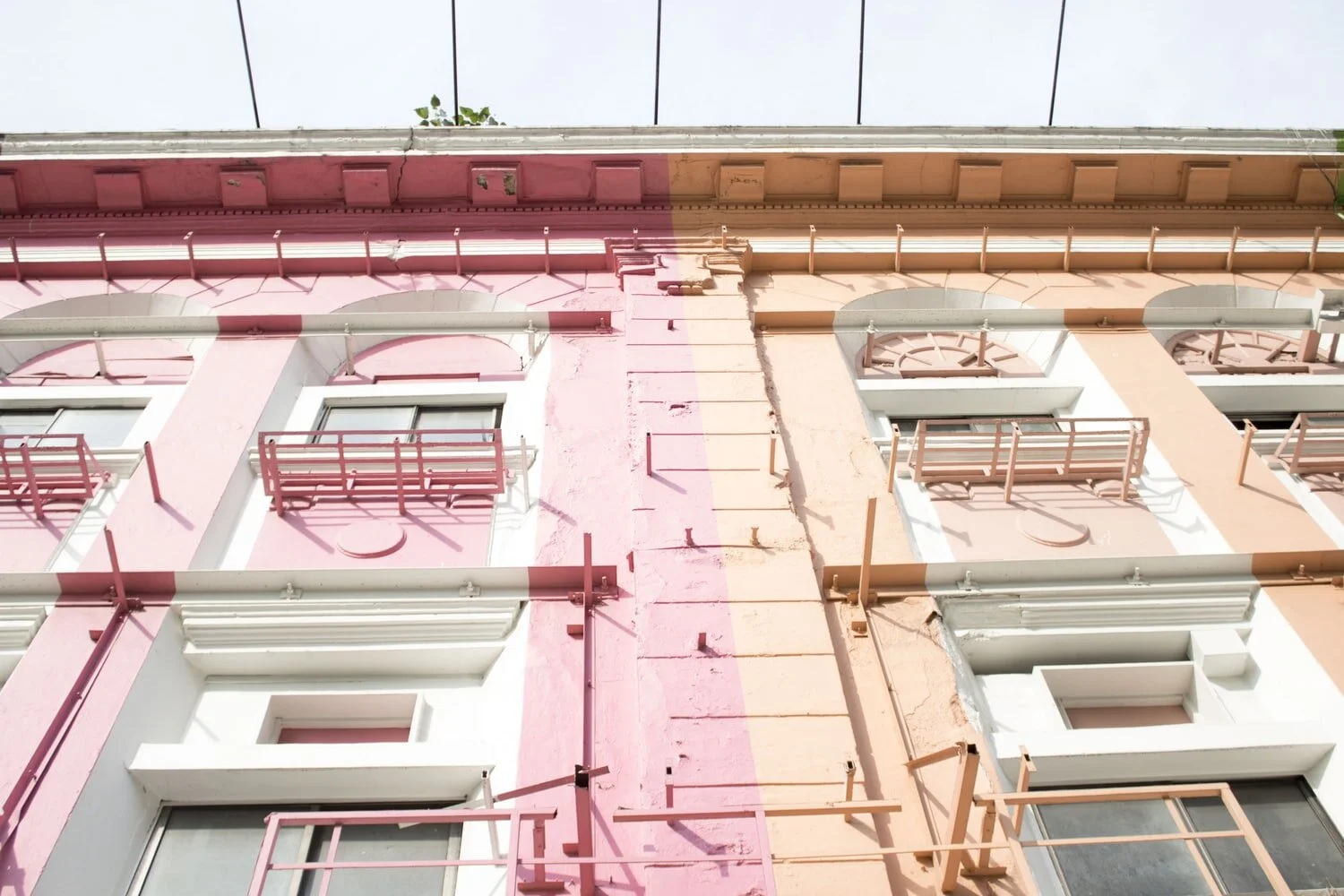The Ultimate Guide To Eating Disorder Recovery On A Budget
For those that can afford it, recovery from an eating disorder can be a large, yet necessary, expense. But what happens to those of us who fall short when it comes to the cost of therapy fees? Who can’t quite stretch to stocking the house with all the food we may fancy, and need a little help sourcing a pair of jeans to fit our newly changing bodies?
Whether you’re taking those first steps towards recovery, or you’re miles in, a financial limit shouldn’t hinder your ability to heal. With a little creativity and a lot of resourcefulness, your recovery can become just as abundant as the more monetarily privileged, albeit in new ways. We hope these tips will help those of you struggling right now, financially, physically and mentally, with your journey.
In your physical space
Changing up the things in your physical space is often the easiest place to start. Working with what you’ve already got has been a long-standing mantra of the money-savvy, and will work wonders for you here too.
Starting with your scales, both bathroom and kitchen, you need to ditch them. If you can afford to get rid of them altogether, then we recommend a ceremonial ‘smashing of the scales’ – just letting out all the anger you want on those symbols of a life lived in restriction. Trust us, nothing helps kick-start an anti-diet movement in your heart quite like destroying the things that once destroyed you. If those items are shared, or you can’t quite afford to part with them, there are still things you can do. Consider asking those you live with to keep them outside of your communal spaces, or even try selling them through Depop or Facebook Marketplace for any needed return on investment.
Next up, you’ll be breaking up with the labels on your food. If you can’t keep yourself from habitually checking the nutritional info on packaging, then completely tearing it off or covering it up will help. Any cans, cardboard-packed ready meals or the like should have their nutritional tables ripped off, and you can take a sharpie or any pen, paint or post-it you have lying around to the plastic packed items also. Speaking of post-its, why not grab a couple more and leave little love notes to yourself all around your space? It may feel a bit unnatural at first, and you may not even believe the complimentary things you say. It takes time to get past this self-kindness barrier, but with patience, consistent action and dedication to believing in yourself, those notes will soon become your favourite part of walking into any room.
On your tech
It’s high-time for a digital deep-clean. Depending on how much technology you own, and your relationship to these kinds of apps, this could be a ground-breaking exercise for you. Open up your phone, go to that folder or section of apps that causes you the most anxiety – and yes, we’re definitely talking about the part where you store all your calorie counters, meal planners and fitness trackers – and we’re going to wipe it. Say goodbye to feeling bad about your body’s shape, size or capabilities, to feeling guilt around food and to feeling like your meals were something you ever had to track the exact nutritional content of at all. You don’t need these apps to determine your worth anymore.
And with your newfound phone-freedom, why not shake up your social media too? Continuing to follow people that make us feel like shit might be free, but the price our mental health pays for it is astronomical. Unfollowing anyone whose posts no longer serve you can be incredibly freeing, and leaves you with more space to follow those that make you smile even on a bad day. Choose to follow a diverse, inclusive and body positive group of people and pay attention to how your attitude towards your feed – and yourself – changes over time.
At the shops
Whether you’re able to get to the shops in person right now, or you’re only able to buy online, these money-saving approaches will work both ways. When it comes to food shopping, the rising prices and our own food fears encourage us to stick with what we know. But why not challenge this pattern of behaviour, buying less of your ‘safe’ foods and a few more of your ‘fear’ foods with the same budget every grocery shop. While no food in inherently good, bad or moral in any way, it does a recovery good to challenge this damaging notion and embrace trying the foods you’re most afraid of. We both know the challenging but cheaper items always end up delicious, and are far less expensive than the zucchini noodles and Spiralizer your eating disorder had its eye on anyway.
When it comes to buying clothes, it can feel like a minefield navigating the needs of a fast-changing body with a low income. But just the same as the tasty little rebellion you can try with your food, there’s also wiggle room with finding new, exciting clothes. From a return to Depop, a visit to Ebay or a trip to the thrift shops when they open, buying pre-loved clothes has never been more accessible. We advise buying these pieces a couple of sizes up from where you are, to make room for any more growth and to experience the fun of wearing clothes that actually fit on your body rather than trap or squeeze it in. Making peace with the new size you’ll be seeing in your labels and pulling off racks will only serve to remind you that a number in your clothes could never define your worth. And if you can’t afford to spend your hard-earned cash here, then there’s no shame in asking family members or friends for a couple of their hand-me-downs either. Upcycling is back in fashion, and in a big way.
With your body
Even on your worst body image days, you still have to eat. That’s a non-negotiable part of any recovery. Creating a list of healthy distraction techniques for mealtimes, such as watching the TV or listening to some Lizzo, means you’ll always have something to help you through eating for when the focus on food becomes too much. Additionally, setting up practical boundaries around your body and your new eating habits will help make recovery that much easier, especially if you’re living with others. Having the firm rule that your meals and the way you eat are not up for discussion, unless you choose to talk about them, is a key part of protecting your mental health through this process.
A more controversial move, but one that will absolutely benefit you in the long run, is putting a pause to all your physical activity. Particularly in the early stages of your recovery, it is vital that your body gets enough sustenance and enough rest for a while. Without allowing your body to recover from the damage of the eating disorder, you’ll suffer with a lack of energy for far longer than anyone would want. So, why drag out the process for any longer than it needs to be? Try using this time of stillness to challenge any remaining compulsions you have around exercise, and appreciate what your cancelled gym membership is doing for your bank balance at the same time.
In your mind
Saving the heaviest work for last, this is how you master your mind when you’re low on the cash to afford help with it. If you have a circle of support around you then never forget how lucky you are, but having even one friend to confide in can make a world of difference. Find a recovery buddy, someone close that you can lean on for support when needed, and try taking up some new habits with them. Why not try meditation, singing or drawing – something that takes you out of your mind when it’s feeling overwhelmed, or helps you see things more clearly when it’s clouded with stressed.
We’ll never feel 100% ready for anything, so why not commit to all-in recovery now? In the process of doing this work on ourselves, we must give ourselves permission to feel our feelings and truly get to know them. Eating disorders take pleasure in numbing us out from our emotions, so getting in touch with our triggers and our automatic thoughts can literally change our world. Taking up journaling to reflect on the layers beneath any body image struggles and learning to challenge every negative thought with a positive one is hard, but so incredibly worth it. Introspection is a skill more important than ever in these trying times, and for those of us that have the privilege of time to ourselves, it’ll be life-saving.
And finally, if you feel like you could do with putting more formal support in place, then take this opportunity to reach out to your local NHS mental health service or any charities that might take your case on. You’d be surprised what help a little Google search can turn up in your area, and if you need a place to start with this research then head on over to our Resources for more specific help.













